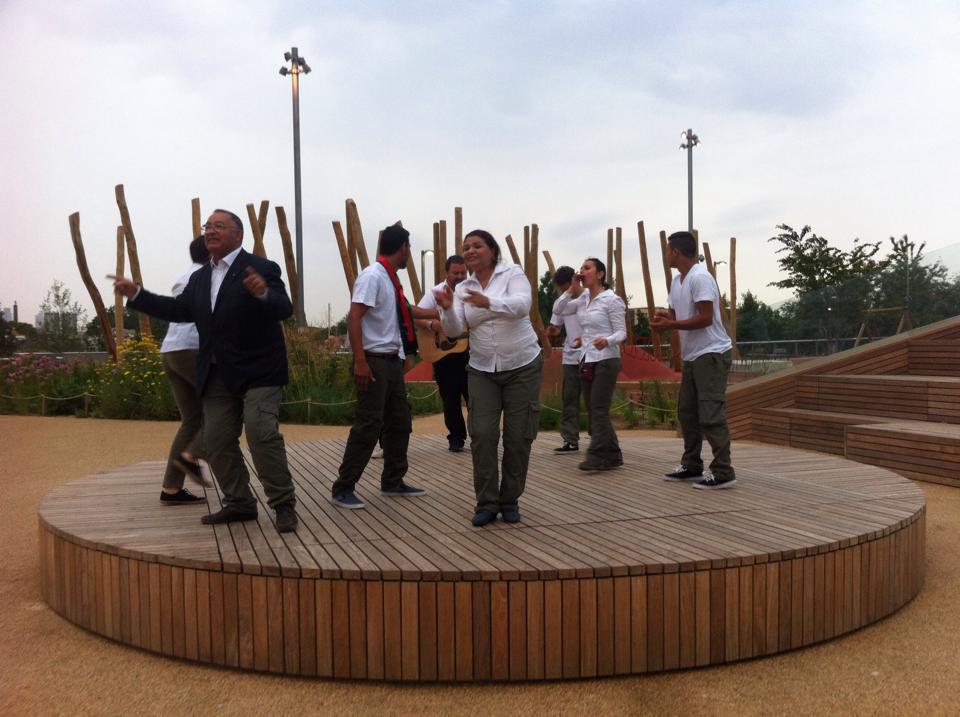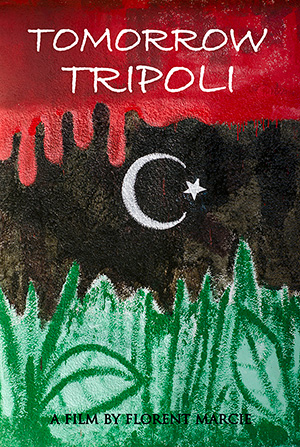By Helena Argyle.

London, 3 July 2014:
A Libyan street theatre group has wowed UK audiences with two outdoor performances exploring ideas of . . .[restrict]conflict and reconciliation, as part of a London festival.
The Libyan Street Theatre group performed a simple yet effective piece in an open-air space outside the Queen Elizabeth Olympic Park, with the Olympic Stadium towering in the background. A stretch of wooden seating descended towards a large gravel path and waterway from where the audience watched the show, parts of which were performed on a circular wooden stage.
With a thud of drums and spoken Arabic blasting over the speakers, the performance began and the actors stepped slowly into view. With stern faces, they descended closer to the audience, building the tension. This reached its zenith with a sudden sound of gunfire and several performers screamed and dropped to the ground, as if dead.
The use of space and music was perfect and added to the drama of the piece. As two actors lay still beneath a bridge, the underside of which was a distorted mirror reflecting their unmoving figures, two other performers mourned them, laying a ring of flowers over the bodies.
The audience was then beckoned to follow the actors, with gestures that felt warm and welcoming. “How does one dance to music when the instrument is broken?” the actors asked. They faced the audience, smiled and said: “Just play!”
A man then appeared with a guitar and the cast burst into song. In an inclusive move that felt less like forced audience participation and more like a show of unity between those watching and performing, everyone danced and clapped their way back towards where the performance had started. This finale provided a joyful and optimistic mood of reconciliation and resolution after the conflict scenes which had opened the piece.
The English weather held out until the end of the performance. As soon as the dancing and singing had ended, the skies opened and actors and audience alike headed for shelter from the rain.
This, the first London performance by the Libyan Street Theatre group, from the National Theatre of Tripoli, was declared a success by both members of the audience and the organisers.
The Associate Director for the Greenwich and Docklands Festival, Nathan Curry, said the group had put the piece together in just ten days, after first seeing the performance space.
In Libya’s current political climate Curry, who has been working with the National Theatre of Tripoli for the past year, said he understood that the development of theatre was not a priority. He added, however, that young Libyan artists had a thirst to explore the art of storytelling. The 2011 revolution had produced a new generation who had many stories to tell, Curry said, adding that he hoped Libyan theatre, which was suppressed under the old regime, could now begin to flourish.
The troupe’s visit was organised with the support of the British Council and the European Development Fund. The Libyan Street Theatre group performed for two nights as part of the Greenwich and Docklands International Festival. [/restrict]









